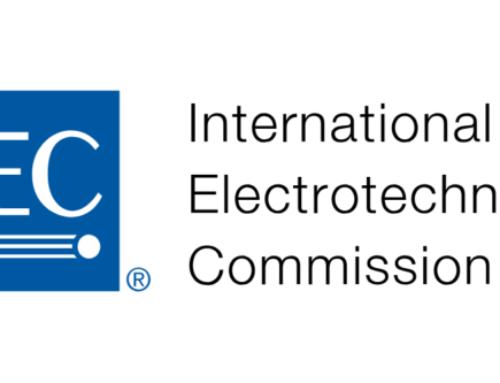On 23rd February 2022, to improve the association standardization work and meet targets set in the National Standardization Development Outline, Standardization Administration of China (SAC) released the Opinions on Promoting the High-quality Development of Association Standards (hereinafter referred to as the Opinions), which was approved by the Inter-ministerial Joint Conference on Standardization Coordination and Promotion of the State Council after deliberation. Here in the following is the full text translation of the Opinions published on China Standardization Magazine, 4th issue, 2022.
The advancement of association standards can fully release the vitality of market entities. Products and services will perform better in competition based on refined standards supply, thereby realizing the high-quality development of China. Association standards in China have developed rapidly in recent years. Relying on the system of policies that gradually takes shape, organizations developing association standards have carried out standardization tasks with strong enthusiasm, greatly promoted the development of new products, business forms and models, and facilitated ample supply of quality products and services. However, association standards in China are still in their preliminary stage for the imbalanced and inadequate development. Many issues emerged, such as poor targeting, mediocre performance, and unregulated applications, which must be resolved through normative management and guidance.
1. Improving the performance of organizations developing association standards
Organizations developing association standards should establish sound standardization working mechanism, with systematic rules set on managing association standards and intellectual property rights. They are required to strengthen full-cycle management of association standards in accordance with relevant procedures and rules, and allocate dedicated staff on standardization work to form sound internal standardization departments, thereby delivering results with high efficiency.
2. Setting up a demand-driven model for standards development
Organizations should find the demand for association standards with accuracy. With close attention paid to the progress of new techniques, sectors, business forms and models, organizations should promote and apply association standards in a well-coordinated manner in the implementation of key projects, sector policies, and international trades. Meanwhile, enterprises with leading techniques are encouraged to participate in the development of association standards, and give full play to their advantages in making standards original and innovative. Entities from relevant links of the industrial and supply chain, including manufacturing, operation, management, construction, consumption, testing, and certification, are welcomed to the joint effort of developing association standards. For the association standards on cyber security concerning national security and public interests, organizations should seek the opinions from National Cyberspace Administration and relevant competent authorities in the State Council.
3. Expanding the application of association standards
Organizations are encouraged to set up a unified working mechanism integrating standards development, inspection, testing and certification, advance the application of association standards in market activities such as bidding and contract fulfillment, and thus establish brands. They should take further steps in the promotion of association standards and improve their social recognition. Authorities of standardization will take the leading role in demonstrating association standards application in accordance with relevant state regulations.
4. Encouraging good conduct assessment
Organizations developing association standards are encouraged to voluntarily implement self- assessment, make self-declaration on the national association standards platform, and register on the list of good conduct of association standards. As a reference for parties that plan to apply association standards, the list can enhance the public influence and credibility of organizations developing association standards. Also, anyone interested in specific association standard can delegate a third party with professional capability and authority to evaluate the good conduct of association standards.
5. Implementing nurturing plans for association standards
Administrative authorities in the State Council and relevant departments will make joint efforts in making nurturing plans for outstanding association standards, building a base of organizations with capabilities, and setting up a scientific assessment mechanism on the performance of organizations in the base. By establishing an assessment mechanism and dynamically adjusting the list of organizations in the base, a batch of organizations will be fostered as benchmarks for an overall improvement of association standardization. The nurturing plans will be formed by closely focusing on innovations in science and technology and modernization of social governance, in the regional key strategic projects, and in emerging industries on the state level.
6. Facilitating opening-up and cooperation
Organizations are encouraged to put forth proposals on international standards based on their association standards, and take the responsibility of domestic counterparts of technical committees of international standardization organizations. Talents are recommended to become registered experts in international standardization organizations. Organizations are also motivated to attract more foreign investment and experts in the development of association standards.
7. Improving the incentive mechanism
Administrative authorities in the State Council will set up a mechanism on adopting association standards in the development of voluntary national standards, and make joint efforts with other competent departments in making achievements on association standards one of the criteria for evaluating science and technology projects. Ministries and local governments are encouraged to reward association standards that achieved remarkable results in boosting high- quality economic and social development. Also, enterprises, universities and scientific research institutions are encouraged to increase the weight of association standards when evaluating and conferring employee’s academic titles. Relevant authorities are also expected to establish a credit enhancement mechanism for the financing of enterprises that have provided quality products and services by following association standards.
8. Increasing compliance awareness among organizations developing association standards
For those who develop association standards, work must be carried out in accordance with standardization regulations with strong integrity and self-discipline. Organizations are forbidden to develop repetitive standards if there are mandatory standards. Also, they are forbidden to infringe copyrights such as plagiarizing other standards. All organizations are banned to profit from or illegally charges in the name of association standardization work. Organizations must act in line with regulations and laws, establish a sound complaint mechanism, and rectify wrongdoings in time.
9. Strengthening social and governmental supervision
All entities or individuals are entitled with the right to complain and report on illegal activities of association standardization work. Standardization authorities at all levels will enhance the supervision of association standards, and regulate behaviors violating laws, and regulations and mandatory national standards, and infringing standard IP rights. Results of such cases will be announced on the national association standards information platform, and reported to relevant authorities. Media is expected to actively lead and supervise association standards, and becomes a binding force on organizations developing association standards.
10. Refining the safeguard measures
For the development of association standards, administrative and standardization authorities at all levels should be aware of the importance of their tasks and carry out work deployment, so as to form synergy in work by taking effective measures and solid actions. Standardizers and officers should frequently review experiences, solve major issues, and prevent potential risks. Further effort will be made to promote relevant policies, enhance the abilities of guidance and support, and facilitate the exchanges and cooperation among organizations. Standardization technical committees and research institutes are mobilized to support association standardization work with strong professional knowledge.
Source: China Standardization Magazine, 4th issue, 2022.




